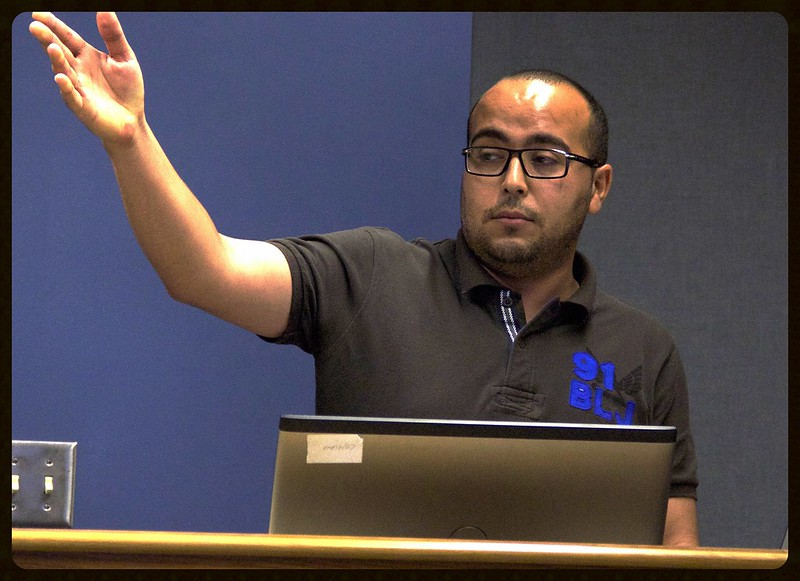 |
| Sayf Mohamed from Tunisia |
Wednesday, July 23, 2014
Tunisian protests were 1st phase of a revolution: SUSI 2014 scholar
By Nisha Garud
Lectures on the role of media and their influence on the
politics continued for the online international media class for Study of the
U.S. Institute (SUSI) on Journalism and Media(SUSI) 2014, when Tunisian
scholar, Sayf Mohamed , gave an insider’s account of how social media like
Facebook, Twitter and YouTube enabled people to bypass the government
censorship in his country and to overthrow the dictators.
Sayf said that the protest was not a revolution, as the
Western media defined it, but it was only a first phase of an uprising. Tunisia
is still in transition. The transition is from a strict media to a dynamic one.
iled bloggers, activists and journalists were released after the government
collapsed. For two months, the journalists were not sure if there was freedom
of press. He also spoke on the status of women and said that women had equal
status in Parliament and got the same salaries as men.
Sports dominate television content in Australia, said the
scholar and lawyer Sarah Harmelink from Australia. This is because Australians
love their sports, she added. Media companies owned by Murdoch and Fairfax
dominate the media market. These companies dictate the media content. Talking
about the growth of the internet, Sarah said, There is internet censorship and
the police and the government have the right to ban websites. They have created
blacklist of blocked content. Typically, there is no public scrutiny of such
censorship. She added immigration was a major issue in Australia but the media
do not give it much attention.
With three doctoral degrees and a United Nations
ambassadorship serving to fight against tuberculosis, Ibrahim Awad from Sudan,
said that factors like custom regulations, lack of paper, printing regulations,
literacy problems, and slow marketing affect print media in his country. The media
industry is not developed in Sudan. Media production centers cropped up as a
result of photographing weddings, covering political issues, documenting
educational events, said Awad, who has travelled to more than 20 countries. The
government owns the cinema because movie production is expensive. Only 10
movies have been made till now in the country.
Radu-Mihai Meza from Romania said that the highest
advertisement revenue was from television. The television market is worth about
193 million euros. He said, In Romania, businessmen have used the excess
profits from illegal business to buy and start media companies. He added that
media mogul, the Intact Media Group, controlled the major media. The owner was
lobbying with the government and used the influence to stay out of jail.
Radu-Mihai said that the print medium is slowly dying. The tabloid market was
at peak in 2008 but started declining over the years.
Subscribe to:
Post Comments (Atom)



No comments:
Post a Comment